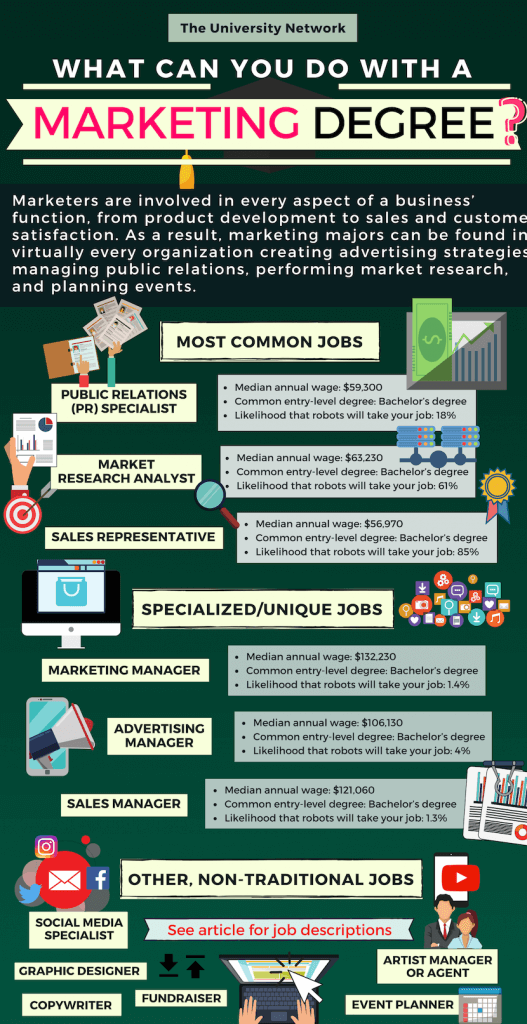- Is a Minor in Art Useful for a Marketing Major?
-
Which minor is best with a marketing major?
- Why Choose a Minor with a Marketing Major?
- 1. Psychology: Understanding Consumer Behavior
- 2. Data Analytics: Leveraging Data for Marketing Success
- 3. Communications: Enhancing Brand Messaging
- 4. Graphic Design: Creating Visual Marketing Content
- 5. Business Administration: Strengthening Strategic Skills
- Can you do marketing with an art degree?
- What can I do with a minor in art?
- Is minoring in art good?
- Frequently Asked Questions from Our Community
In today’s competitive job market, marketing professionals are increasingly seeking ways to differentiate themselves. One strategy gaining attention is combining a marketing major with a minor in art. But is this combination truly beneficial? A minor in art can enhance creativity, visual communication skills, and an understanding of design principles—qualities that are invaluable in crafting compelling marketing campaigns. From branding to digital content creation, the intersection of art and marketing offers unique opportunities to stand out. This article explores whether pursuing a minor in art is a practical and impactful choice for marketing majors, examining its potential advantages and real-world applications.
Is a Minor in Art Useful for a Marketing Major?
A minor in art can be highly beneficial for a marketing major, as it provides a unique blend of creative and analytical skills. Marketing often requires innovative thinking, visual communication, and the ability to connect with audiences on an emotional level. By pursuing a minor in art, marketing students can enhance their ability to create compelling campaigns, design visually appealing content, and think outside the box. Additionally, understanding art principles can help marketers better appreciate aesthetics, which is crucial in branding and advertising.
See Also How Do You Get Into Digital Marketing?
How Do You Get Into Digital Marketing?How Does an Art Minor Enhance Creativity in Marketing?
An art minor encourages students to think creatively and approach problems from different perspectives. In marketing, creativity is essential for developing unique campaigns, designing eye-catching advertisements, and crafting memorable brand identities. By studying art, marketing majors can learn to visualize ideas and communicate messages effectively through visual mediums, which is a valuable skill in today’s visually-driven market.
What Role Does Visual Communication Play in Marketing?
Visual communication is a cornerstone of modern marketing. An art minor equips students with the skills to create visually appealing content, such as infographics, social media posts, and advertisements. Understanding color theory, composition, and design principles allows marketers to convey their messages more effectively and engage their target audience. This skill is particularly important in digital marketing, where visuals often determine the success of a campaign.
See Also Which Marketing Skills Do Companies Require and Expect?
Which Marketing Skills Do Companies Require and Expect?Can an Art Minor Improve Branding Strategies?
Yes, an art minor can significantly improve branding strategies. Branding relies heavily on visual identity, including logos, color schemes, and typography. By studying art, marketing students gain a deeper understanding of how to create cohesive and impactful brand visuals. This knowledge helps them develop brands that resonate with consumers and stand out in competitive markets.
How Does Art Education Influence Consumer Behavior?
Art education teaches students about aesthetics and emotional appeal, which are critical in influencing consumer behavior. Marketers with an art background can design campaigns that evoke specific emotions, making products or services more appealing to potential customers. Understanding the psychological impact of visuals allows marketers to create more persuasive and effective advertising.
See Also How Exactly Do You Learn Marketing?
How Exactly Do You Learn Marketing?What Career Opportunities Benefit from Combining Art and Marketing?
Combining an art minor with a marketing major opens doors to various career opportunities, such as graphic design, creative direction, content creation, and brand management. These roles require a blend of artistic and marketing skills, making them ideal for individuals with this dual expertise. Additionally, industries like advertising, fashion, and entertainment highly value professionals who can merge creativity with strategic thinking.
| Skill | Benefit in Marketing |
|---|---|
| Visual Communication | Enhances ability to create engaging content |
| Creativity | Encourages innovative campaign ideas |
| Branding Knowledge | Improves ability to develop strong brand identities |
| Aesthetic Understanding | Helps create visually appealing advertisements |
| Emotional Appeal | Influences consumer behavior effectively |
Which minor is best with a marketing major?

Why Choose a Minor with a Marketing Major?
Pairing a marketing major with a complementary minor can enhance your skill set, broaden your career opportunities, and make you more competitive in the job market. A well-chosen minor allows you to specialize in areas that align with your career goals, such as digital marketing, consumer behavior, or data analysis. Below are some of the best minors to consider.
1. Psychology: Understanding Consumer Behavior
A minor in psychology is highly beneficial for marketing majors because it provides insights into consumer behavior and decision-making processes. This knowledge helps marketers create more effective campaigns by understanding what drives customer actions.
- Consumer insights: Learn how psychological principles influence purchasing decisions.
- Targeted campaigns: Develop strategies that resonate with specific audience segments.
- Emotional branding: Use psychological techniques to build stronger emotional connections with customers.
2. Data Analytics: Leveraging Data for Marketing Success
In today’s data-driven world, a minor in data analytics equips marketing majors with the skills to analyze and interpret data, enabling them to make informed decisions and optimize marketing strategies.
- Data interpretation: Learn to analyze customer data to identify trends and patterns.
- Campaign optimization: Use data to refine marketing campaigns for better ROI.
- Predictive modeling: Forecast future consumer behavior based on historical data.
3. Communications: Enhancing Brand Messaging
A minor in communications complements a marketing major by improving your ability to craft compelling messages and effectively communicate with diverse audiences.
- Effective storytelling: Develop skills to create engaging narratives for brands.
- Media relations: Learn how to manage relationships with media outlets for better brand exposure.
- Crisis communication: Gain expertise in handling public relations challenges during crises.
4. Graphic Design: Creating Visual Marketing Content
For marketing majors interested in creative roles, a minor in graphic design provides the technical skills needed to design visually appealing marketing materials.
- Visual branding: Create cohesive and attractive brand visuals.
- Digital content creation: Design graphics for social media, websites, and advertisements.
- Software proficiency: Gain expertise in tools like Adobe Photoshop, Illustrator, and InDesign.
5. Business Administration: Strengthening Strategic Skills
A minor in business administration helps marketing majors develop a broader understanding of business operations, which is essential for leadership roles in marketing.
- Strategic planning: Learn to align marketing strategies with overall business goals.
- Financial acumen: Understand budgeting and financial management for marketing campaigns.
- Leadership skills: Develop the ability to manage teams and projects effectively.
Can you do marketing with an art degree?

How Does an Art Degree Prepare You for Marketing?
An art degree equips you with a unique set of skills that are highly transferable to marketing. These include:
- Creativity: Art graduates are trained to think outside the box, which is essential for developing innovative marketing campaigns.
- Visual Communication: Understanding how to convey messages through visuals is crucial in creating compelling advertisements and branding materials.
- Attention to Detail: Artists are meticulous, a trait that helps in crafting precise and effective marketing strategies.
What Marketing Roles Are Suitable for Art Graduates?
Art graduates can excel in various marketing roles, including:
- Graphic Designer: Creating visual content for marketing campaigns.
- Content Creator: Developing engaging content for social media and websites.
- Brand Manager: Overseeing the visual and communicative aspects of a brand.
How Can Art Graduates Transition into Marketing?
Transitioning from an art degree to a marketing career involves:
- Building a Portfolio: Showcase your ability to create marketing materials.
- Gaining Experience: Internships or freelance projects can provide practical marketing experience.
- Learning Marketing Tools: Familiarize yourself with software like Adobe Creative Suite and marketing platforms like Google Analytics.
What Are the Benefits of Combining Art and Marketing Skills?
Combining art and marketing skills offers several advantages:
- Unique Perspective: Art graduates bring a fresh, creative approach to marketing strategies.
- Enhanced Creativity: The ability to think creatively can lead to more innovative and effective marketing campaigns.
- Strong Visual Communication: Art skills enhance the ability to create visually appealing and impactful marketing materials.
What Additional Skills Should Art Graduates Develop for Marketing?
To succeed in marketing, art graduates should consider developing the following skills:
- Digital Marketing: Understanding SEO, social media marketing, and email marketing.
- Analytical Skills: Learning to interpret data to measure the success of marketing campaigns.
- Communication Skills: Enhancing verbal and written communication to effectively convey marketing messages.
What can I do with a minor in art?

Career Opportunities with an Art Minor
An art minor can open doors to various career paths, especially when combined with a major in another field. Here are some potential career opportunities:
- Graphic Designer: Combine your artistic skills with technology to create visual content for businesses, advertising, and media.
- Art Director: Oversee the visual style and images in magazines, newspapers, product packaging, and movie and television productions.
- Museum Curator: Work in museums or galleries, managing collections and organizing exhibitions.
Enhancing Creative Skills
An art minor helps you develop and refine your creative skills, which are valuable in many professions. Here’s how:
- Critical Thinking: Art education encourages you to think outside the box and approach problems creatively.
- Visual Communication: Learn to convey ideas and messages through visual media, a skill useful in marketing, advertising, and design.
- Attention to Detail: Art projects often require meticulous attention to detail, a trait beneficial in fields like architecture and engineering.
Complementing Other Disciplines
An art minor can complement various majors, enhancing your overall skill set. Here’s how it can benefit different fields:
- Business: Understanding design and aesthetics can be advantageous in marketing, branding, and product development.
- Psychology: Art therapy is a growing field where psychological principles are applied through artistic expression.
- Education: An art minor can prepare you to teach art or integrate creative methods into other subjects.
Building a Portfolio
An art minor allows you to build a portfolio, which is essential for many creative careers. Here’s why it’s important:
- Showcase Your Work: A portfolio demonstrates your skills and creativity to potential employers or clients.
- Diverse Projects: Include a variety of projects to show your versatility and ability to work in different mediums.
- Professional Development: Regularly updating your portfolio helps you track your progress and refine your skills.
Networking and Collaboration
Pursuing an art minor provides opportunities to network and collaborate with other creative individuals. Here’s how:
- Art Exhibitions: Participate in exhibitions to showcase your work and meet other artists and professionals.
- Workshops and Seminars: Attend events to learn new techniques and connect with industry experts.
- Collaborative Projects: Work on group projects to gain experience in teamwork and expand your professional network.
Is minoring in art good?
What Are the Benefits of Minoring in Art?
Minoring in art can offer numerous benefits, especially for students looking to enhance their creativity and critical thinking skills. Here are some key advantages:
- Enhanced Creativity: Studying art encourages creative problem-solving and innovative thinking, which can be applied to various fields.
- Improved Communication Skills: Art helps individuals express ideas visually, which can complement verbal and written communication.
- Broader Career Opportunities: A minor in art can make you stand out in fields like marketing, design, education, and even technology.
How Does an Art Minor Complement Other Majors?
An art minor can significantly complement other majors by providing a unique perspective and skill set. Here’s how:
- Business Majors: Art can enhance skills in branding, advertising, and product design, making graduates more versatile.
- STEM Fields: Art fosters creativity, which is crucial for innovation in science, technology, engineering, and mathematics.
- Humanities: Art history and theory can deepen understanding of cultural contexts, enriching studies in literature, history, and philosophy.
What Skills Can You Gain from an Art Minor?
An art minor equips students with a variety of transferable skills that are valuable in both personal and professional settings. These include:
- Visual Literacy: The ability to interpret and create visual content is increasingly important in a digital world.
- Attention to Detail: Art projects often require precision and meticulousness, which can improve overall work quality.
- Time Management: Balancing creative projects with other responsibilities helps develop strong organizational skills.
Is an Art Minor Worth It for Non-Art Careers?
Even for those pursuing non-art careers, an art minor can be highly beneficial. Here’s why:
- Diverse Skill Set: Employers value candidates with a mix of technical and creative skills.
- Innovation: Art fosters out-of-the-box thinking, which is crucial for roles in management, marketing, and entrepreneurship.
- Personal Fulfillment: Engaging in art can provide a creative outlet, reducing stress and improving overall well-being.
What Are the Challenges of Minoring in Art?
While there are many benefits, minoring in art also comes with its own set of challenges. Consider the following:
- Time Commitment: Art projects can be time-consuming, which may conflict with other academic responsibilities.
- Subjectivity: Art is often subjective, which can make grading and feedback challenging for some students.
- Resource Requirements: Some art courses may require additional materials or software, increasing overall costs.
Frequently Asked Questions from Our Community
How can a minor in art complement a marketing major?
A minor in art can significantly enhance a marketing major by providing a strong foundation in creativity and visual communication. Marketing often relies on compelling visuals to capture audience attention, and an art background can help students develop skills in graphic design, branding, and aesthetic appeal. Additionally, understanding art principles can improve the ability to create innovative campaigns and memorable content, which are essential in today's competitive market.
What specific skills from an art minor are useful in marketing?
An art minor equips students with skills such as design thinking, color theory, and composition, which are directly applicable to marketing. These skills enable marketers to create visually appealing advertisements, social media posts, and website layouts. Furthermore, courses in digital art or multimedia design can provide technical proficiency in tools like Adobe Creative Suite, which are widely used in the marketing industry. The ability to think creatively and approach problems from a design perspective can set marketing professionals apart from their peers.
Does an art minor improve career prospects for marketing majors?
Yes, an art minor can improve career prospects for marketing majors by making them more versatile and competitive in the job market. Employers often seek candidates who can combine analytical marketing skills with creative abilities. Roles such as content creator, brand manager, or creative director may particularly benefit from this combination. Additionally, having an art minor demonstrates a well-rounded skill set, which can be appealing to companies looking for innovative and multidisciplinary team members.
Are there any challenges in pursuing an art minor alongside a marketing major?
While an art minor can be highly beneficial, it may also present challenges, such as managing the time commitment required for both fields. Art courses often involve hands-on projects and studio time, which can be demanding alongside the coursework of a marketing major. Additionally, students may need to balance the technical and analytical aspects of marketing with the creative and subjective nature of art. However, with proper planning and time management, these challenges can be overcome, and the combination can lead to a unique and rewarding career path.
Leave a Reply


Articles of interest